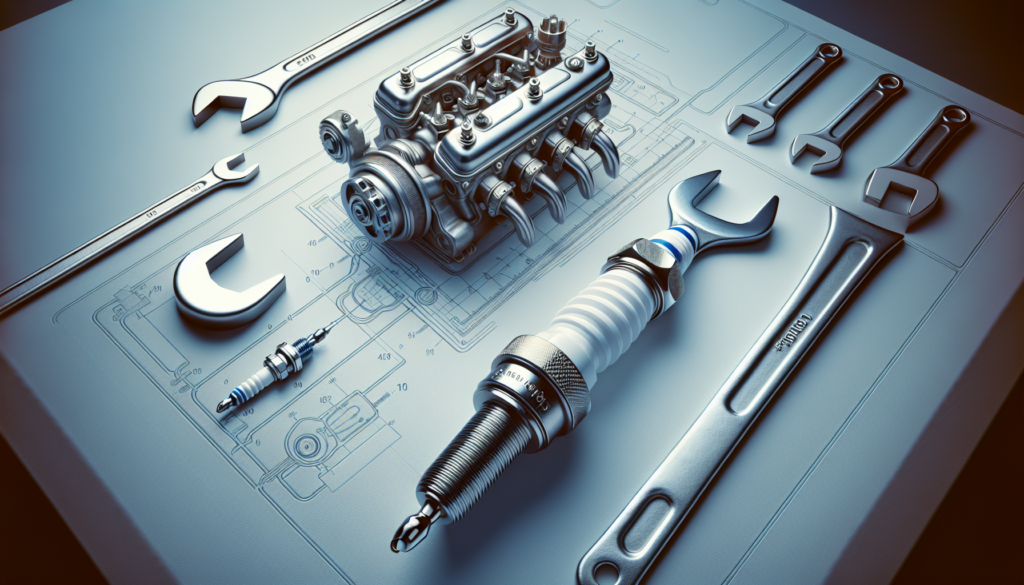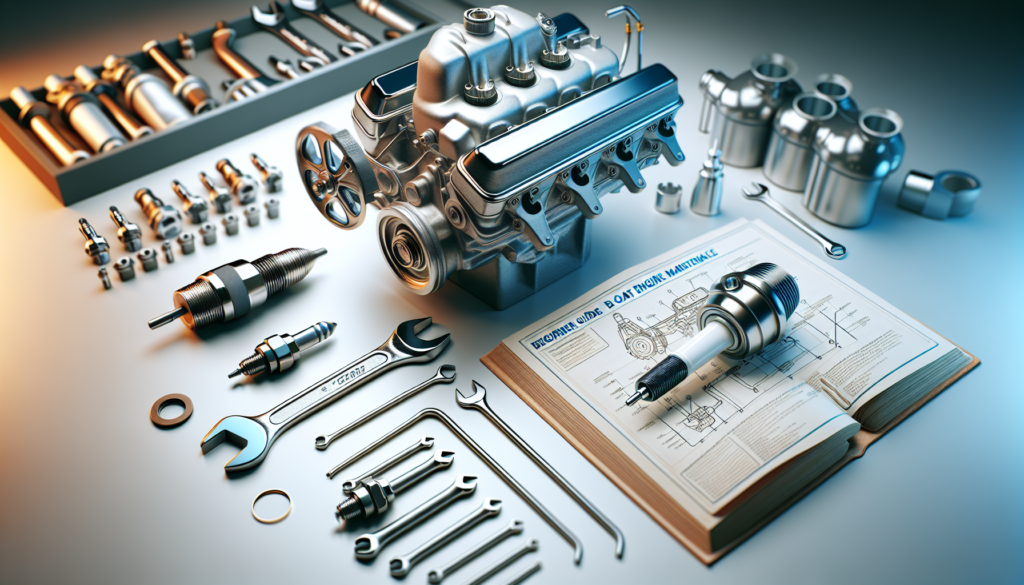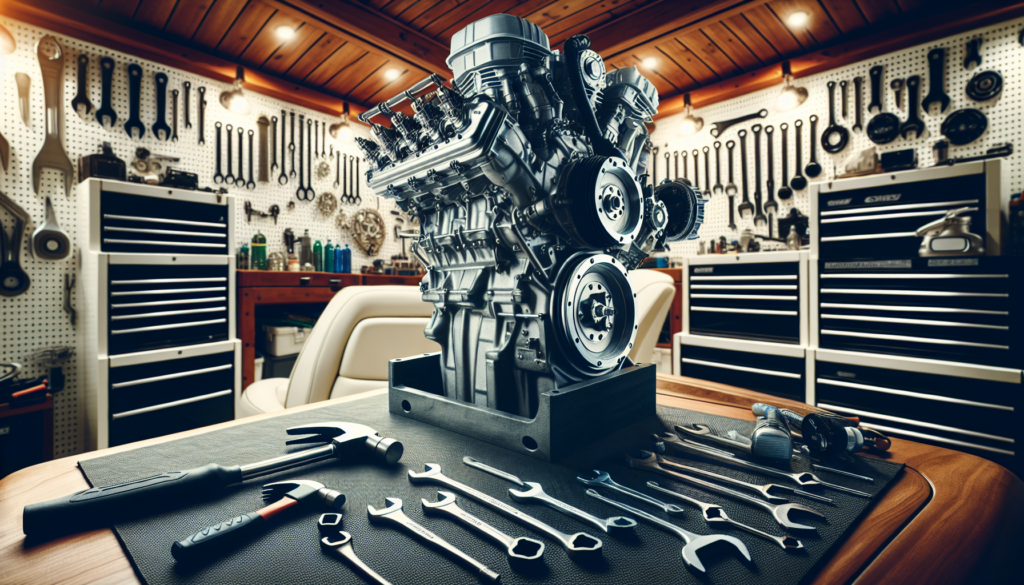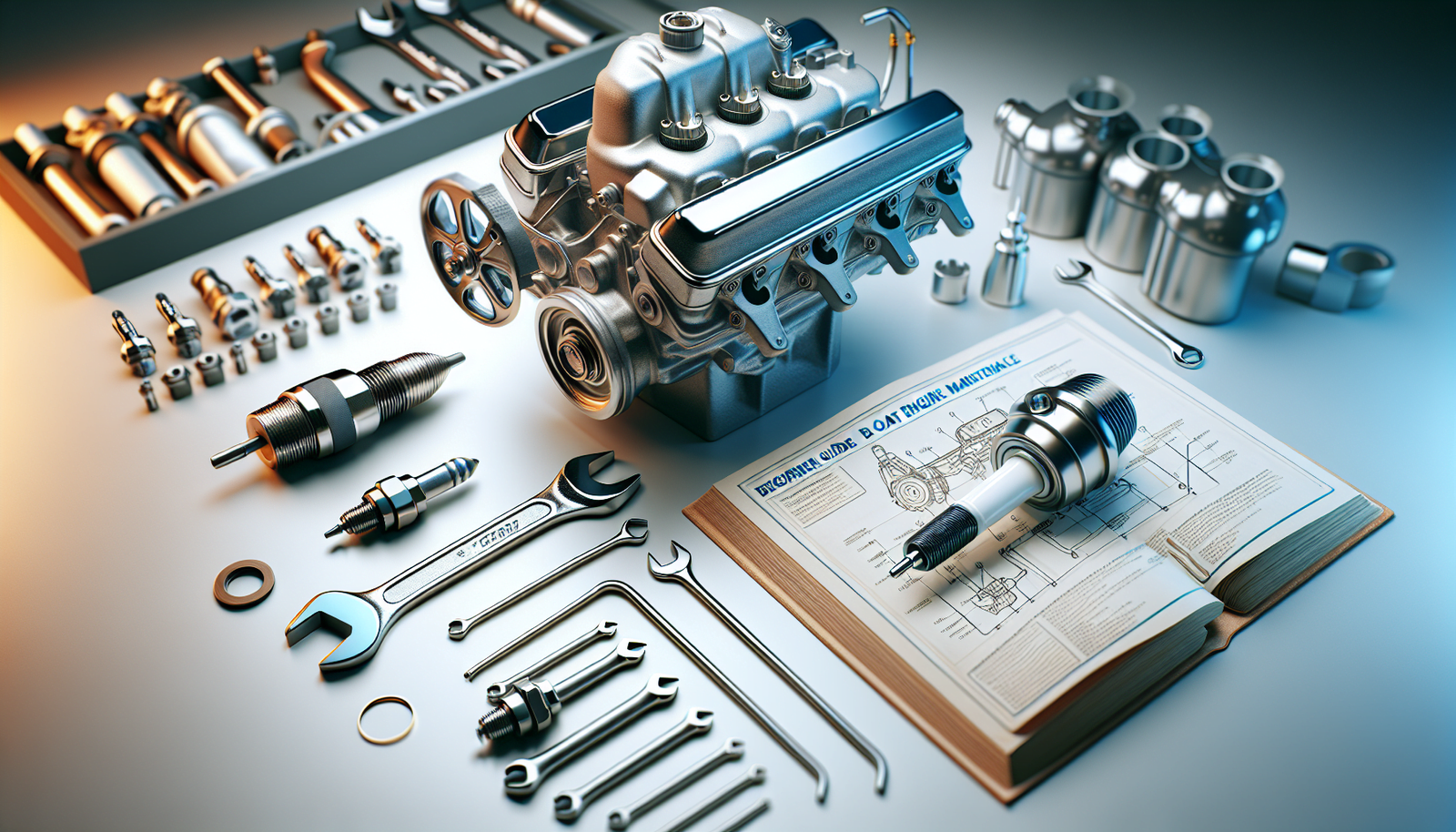As a proud boat owner, maintenance can seem like a daunting task, especially when it comes to your engine. Langushing engine issues can dampen any boating experience and cripple your seafaring fun. That’s why we’ve created this simple beginner’s guide to boat engine maintenance. It’s straight-forward, easy-to-understand, and perfect for newbies. Whether it’s troubleshooting, fine-tuning, or carrying out a complete overhaul, you’ll find useful tips and tricks that’ll increase your comfort level and lend confidence as you navigate the world of boat engine maintenance. It’s all about optimizing your boat’s performance while preventing unnecessary breakdowns. Smooth sailing, after all, is only possible with a shipshape engine – so let’s keep yours in top-notch condition!

Understanding Your Boat Engine
A boat engine is the heart of your vessel, and gaining an understanding of how it works will help you make sure it’s running at its best. It’s essential for every boat owner to have some basic knowledge about their boat’s engine in order to keep it in good working condition. Let’s start by understanding the different types of boat engines and their basic components.
Types of Boat Engines
There are primarily three types of boat engines: Outboard, Inboard, and Sterndrive. Outboard engines are most common on small boats and are mounted outside the hull at the stern. They are generally easier to maintain and repair. Inboard engines are found within the boat’s hull and are typically found in larger boats. Sterndrive, or ‘inboard/outboard’ engines, are a hybrid combining features of both. Each type has its own unique set of characteristics, perks and challenges.
Basic Components of a Boat Engine
Boat engines, like all engines, consist of several key components, including the engine block, cylinders, pistons, a crankshaft, connecting rods, and valves. Also important are the fuel and ignition systems, which deliver fuel to the engine and ignite it to start the combustion process. By understanding these components and how they work together, you can better diagnose and solve engine problems when they arise.
Initial Boat Engine Checks
Before you set off on any voyage, it’s essential to check on your boat’s engine. Regular inspection of key components will help identify any potential problems before they become serious.
Checking Engine Oil Levels
Regularly checking the oil level in your boat’s engine is an easy but important task. Low oil levels can lead to engine damage. To check the oil, you’ll need to locate the dipstick, remove it, wipe it clean, then reinsert and remove it again to get a reading. The oil level should be between the minimum and maximum markers on the dipstick.
Assessing Coolant Levels
Engine coolant is crucial for preventing your engine from overheating. To check the coolant, locate the coolant reservoir and ensure the fluid is between the minimum and maximum lines. Always check the coolant when the engine is cold.
Inspecting Belts and Hoses
Belts and hoses are key components of your boat’s engine. Regularly check for signs of wear, such as cracks, fraying or looseness. Damaged belts and hoses need to be replaced as soon as possible to prevent engine failure.
Regular Maintenance
Regular maintenance is important for the longevity and performance of your boat engine.
Changing Engine Oil
Just like in a car, boat engines require regular oil changes to keep them running smoothly. You should change the oil every 100 hours of operation or at least once a year, even if you don’t use your boat that often.
Replacing Fuel and Air Filters
Fuel and air filters need to be checked regularly and replaced as needed. The fuel filter removes impurities from the fuel before it reaches the engine, while the air filter removes harmful particles from the air entering the engine. A dirty or clogged filter can reduce engine efficiency and cause damage.
Checking Spark Plugs
Spark plugs play a vital role in the engine’s combustion process. You should check and clean spark plugs regularly, and replace any that show signs of wear or damage.
Seasonal Maintenance
Alongside regular maintenance, seasonal maintenance will help ensure your boat is ready to go when you need it.
Preparing for Winter
Before winter sets in, you should ‘winterize’ your boat’s engine. This includes changing the oil, applying a fogging solution to the engine, and adding fuel stabilizer to prevent the fuel from deteriorating. It’s also wise to remove the battery and store it in a safe, dry place.
Getting Ready for Boating Season
Once boating season rolls around again, prepare your engine by checking all of the items in the regular maintenance section. In addition, make sure your battery is fully charged and reconnected properly.

Troubleshooting Common Engine Problems
Even with diligent maintenance, engine problems can arise. Identifying and addressing these issues quickly can prevent further damage.
Issues with Starting the Engine
Difficulty starting the engine can be due to several issues such as a dead battery, bad spark plugs or a clogged fuel line. These elements should be checked and replaced or fixed as necessary.
Engine Overheating
An overheating engine can be dangerous and is often caused by low coolant levels or a faulty cooling system. Always keep an eye on your boat’s temperature gauge and investigate any unusual increases immediately.
Loss of Engine Power
If your engine suddenly loses power, it might be caused by a clogged fuel line, dirty air filter, or problems with the ignition system. Check these components and replace as necessary.
Maintaining Engine Cooling Systems
The cooling system plays a crucial role in preventing overheating in boat engines. Regular maintenance of the cooling system is vital for the long-term health of your engine.
Understanding the Cooling System
The cooling system in a boat engine keeps it cold by circulating coolant. There are two types of boat engine cooling systems: raw water (direct) and fresh water (indirect). In the raw water system, sea or lake water is pumped directly through the engine; in the fresh water system, coolant is circulated through the engine and cooled down by seawater.
Inspecting and Cleaning the Cooling System
The cooling system should be inspected regularly for signs of corrosion or leaks. The coolant should be drained and replaced every few years or as per the manufacturer’s recommendation. Also, cleaning the cooling system with a flushing solution can help remove salt and sediment build-ups.

Fuel System Maintenance
The fuel system plays a critical role in the boat engine’s operation. Its proper maintenance is essential for the engine’s performance.
Cleaning Fuel Tanks
Over time, impurities can build up in the fuel tank and clog the fuel system. It’s advisable to clean the fuel tank once every few years to prevent such problems.
Inspecting and Replacing Fuel Lines
Fuel lines are prone to damage from heat and constant movement. Regular inspection will help identify any potential leaks or cracks. Damaged fuel lines should be replaced immediately to prevent leaks.
Electrical System Maintenance
The electrical system of your boat is key to starting the engine and operating onboard accessories and navigational equipment. It needs proper care and maintenance.
Securing Battery Connections
Check your battery connections often. Loose or corroded connections can prevent the boat from starting or even damage the electrical system.
Checking for Corrosion
Boats operate in a harsh environment, making them susceptible to corrosion. Regularly looking for and addressing corrosion will help prolong the life of your electrical system.
Refreshing Electrical Contacts
Use a contact cleaner to clean and lightly lubricate all electrical connections. This will ensure a proper connection and prevent corrosion.

Propeller and Drivetrain Maintenance
Boat propellers and drivetrains deliver power from the engine to the water. Both need to be regularly maintained to ensure the best performance and prolong their lifespan.
Inspecting Propellers
Frequent inspection of the propeller for dents, cracks or damage is crucial as it can greatly affect your boat’s performance and efficiency. Any damage found should be addressed as soon as possible.
Lubricating and Aligning the Drivetrain
Once a year the drivetrain should be lubricated and realigned for smooth operation. Regular lubrication will prevent rust and corrosion, while correct alignment will reduce the chances of excessive wear and tear.
Professional Assistance and Routine Inspections
While much of boat engine maintenance can be done on your own, there are times when it’s best to enlist professional help. Additionally, having professional inspections regularly can help identify potential issues before they become troublesome.
Knowing When to Seek a Professional
If you don’t feel comfortable performing any part of the routine maintenance or you come across an issue you can’t resolve, it’s time to seek professional help. Ignoring the problem or trying to fix it without the right knowledge can lead to further damage.
Scheduled Professional Inspections
Even if there are no obvious issues with your boat engine, regular professional inspections will ensure that underlying issues are caught early. Set a up routine schedule that depends on how often you use your boat and the type of environment it’s typically used in.
Maintaining a Maintenance Log
A maintenance log is a handy tool to track of all the maintenance and repairs done on your boat engine. Record any work done, parts replaced and dates of professional inspections in this log. This can also be very helpful when selling your boat or when dealing with warranty claims.
In conclusion, understanding and maintaining your boat’s engine might seem complicated but with a few basic skills and regular attention, it is manageable. Regular maintenance will not only prolong the life of your boat’s engine, but it will also greatly enhance your boating experience.

